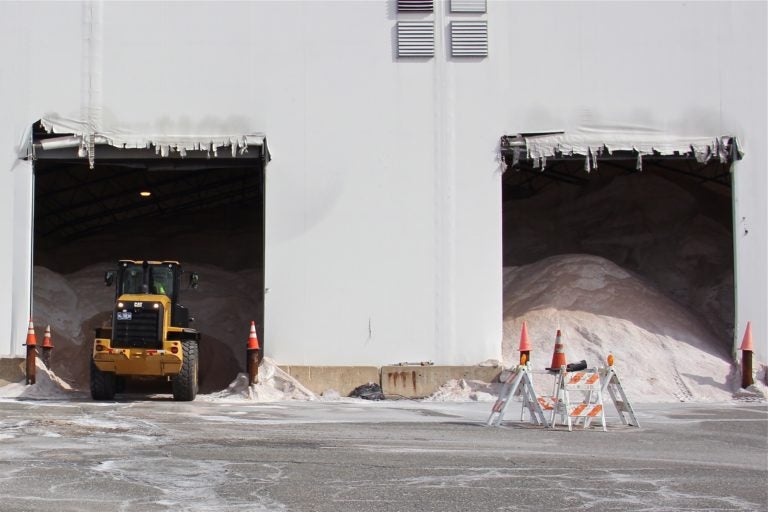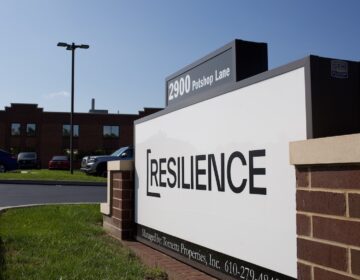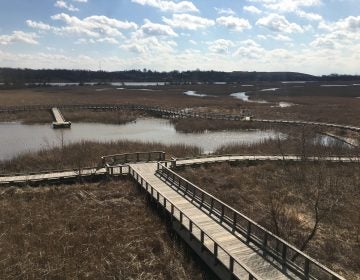Snowless winter good for taxpayers, lousy for plow drivers in Pa.
Very low snowfall in the greater Philadelphia area may indicate severe weather to come. For now, the region is soaking in the benefits of the mild winter.

Road salt fills a storage barn in Southwest Philadelphia. (Emma Lee/WHYY)
Philadelphia’s snowfall this winter is officially on track to becoming the second-lowest snowfall in the city’s history. The winter of 1972-1973, which saw no snow at all, still holds the first place title.
That’s translating into savings for the Pennsylvania Department of Transportation. PennDOT has spent less than half its $29.5 million snow removal budget for clearing roads in Bucks, Chester, Delaware, Montgomery and Philadelphia counties.
But for snow-related businesses in the area, this winter has been nothing short of a nuisance.
John Ruane of Pine Valley Snow Management in Philadelphia says usually by this time of the season he would have had several storms plowed and money in the bank — not this year.
In an effort to curb the impact of no snow, Pine Valley sells seasonal contracts to larger property owners. Those businesses pay the same for plowing regardless of how much or how little snowfalls.
“The season contracts work very well for their budgets because they can forecast their budgeting for the other maintenance throughout their properties two and three years ahead of time,” Ruane said.
On average, Philadelphia and its suburbs receive 22.5 inches of snow per winter. According to Ruane, about every ten years the area experiences a winter with very few flakes. January and February 2020 have only seen an accumulated 0.3 inches of snow in the city proper.
The mild winder has a non-financial benefit says Brad Rudulph, spokesman for PennDOT.
“With good weather, we’re able to get out on the road and do maintenance, continue with our construction program. Less severe weather also translates to fewer potholes,” Rudolph said. “We haven’t seen as many freeze-thaw cycles, which creates the outbreaks of the potholes we see.”
WHYY is your source for fact-based, in-depth journalism and information. As a nonprofit organization, we rely on financial support from readers like you. Please give today.





